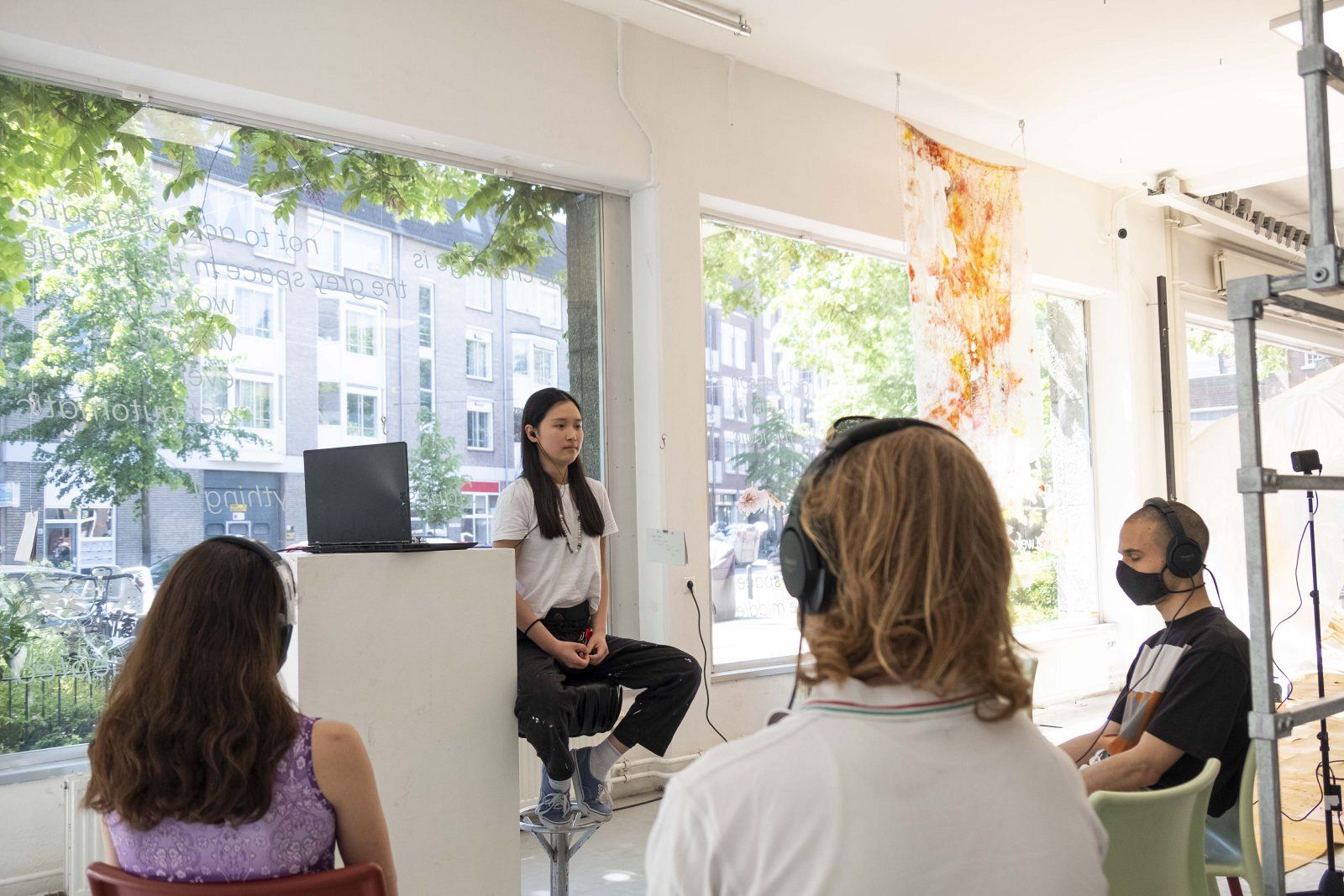
Minji Kim
Keywords: Auditory perception, Binaural listening, Performance
kindisgood@gmail.com
minjikim.webflow.io/
www.instagram.com/minjhikim/
minjikim.bandcamp.com/album/bus22-the-others-sonic-experience-the-hague
Minji Kim is a Korean sound artist based in The Hague, The Netherlands. In her early life, she used to study and work for video game production. Since she fascinated by audio-visual context, she moved to her position and had live coding performances.
After several live coding performances, she started to concern about the spectacles on screen-based audiovisual and felt a desire to connect with humans and nature. She decides to escape the pixels for a while to dig into the human psychology side of phenomenology.
These days, she explores imaginary cityscapes of inner perceptions such as memory space and dream space, in the context of language-based Psycho-Philosophical acoustics. In her practice, she uses a narrative-based method - storytelling, with an immersive sound system.
In the work, listening performance series, she experiments the interconnection between headphones(inner perception) and speaker(physical surrounding) and tries to represent the imaginary cityscapes. And unique storytelling with voice thread the scapes.
Graduation Project
My series of listening performances explores the question, ‘How does hearing experience construct?’ in the context of psycho-philosophical acoustic with a site-specific binaural recording and unique narrative using voice.
In the performance, I put a binaural microphone into my ears and invite the audience to my auditory perception. It starts from listening to a place where performance is happening, then jumps to my surreal space-time.
The most recent one, Listening performance: flashback session, is about a hearing experience in my memory of the Hague. I bring audiences to a personal specific time and places in the Hague. In this process, I dialectically explain what elements constitute a hearing.
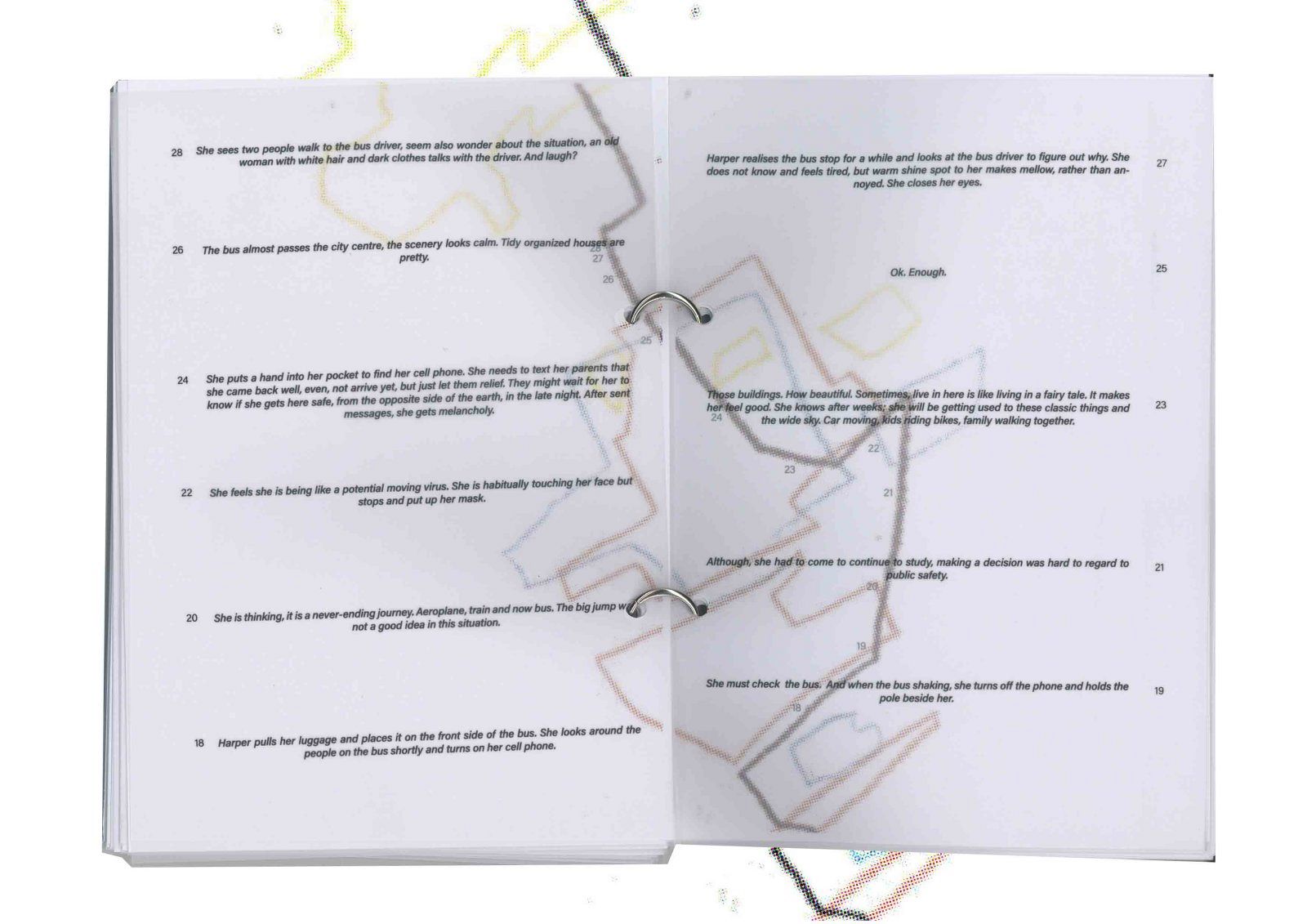
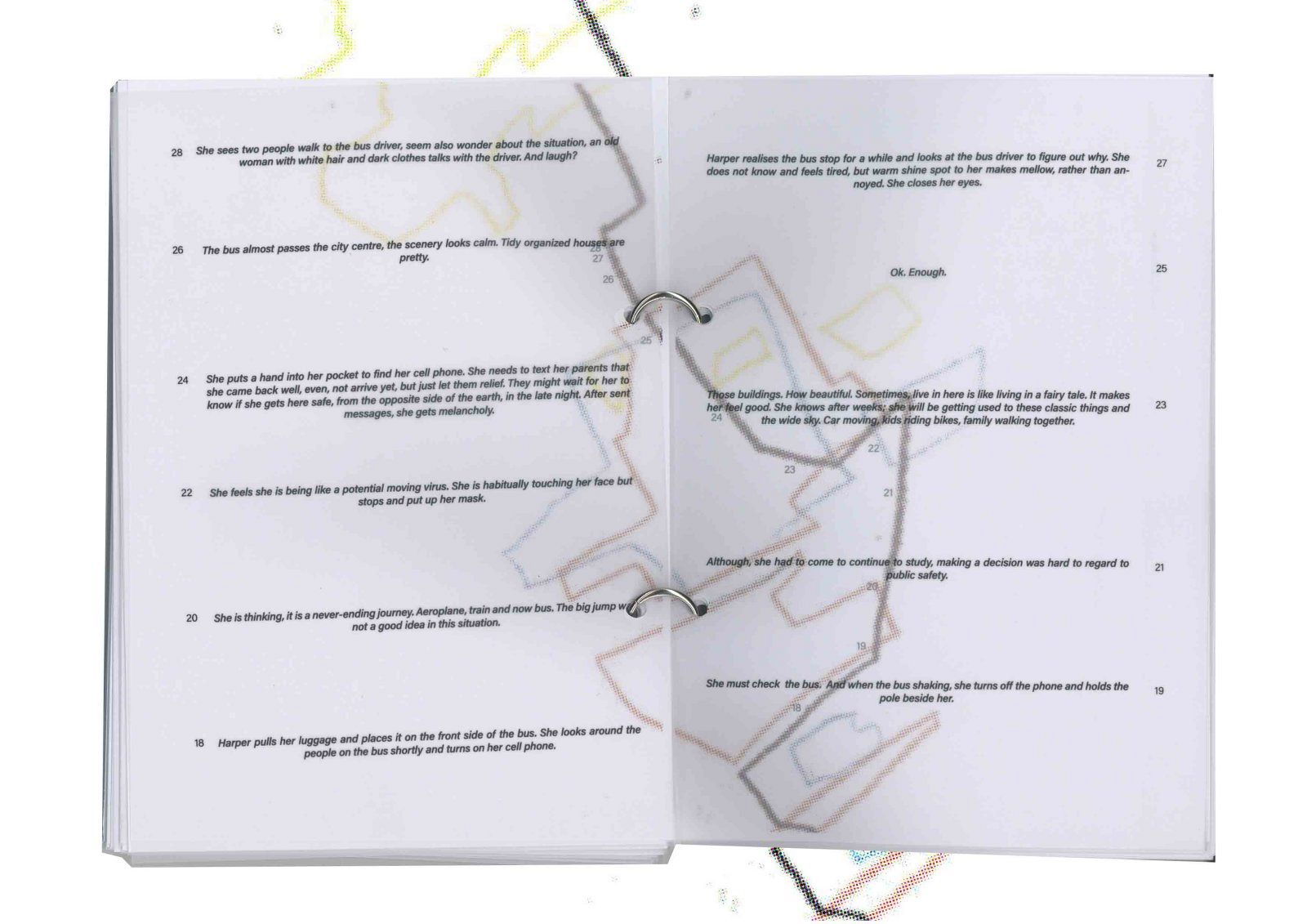
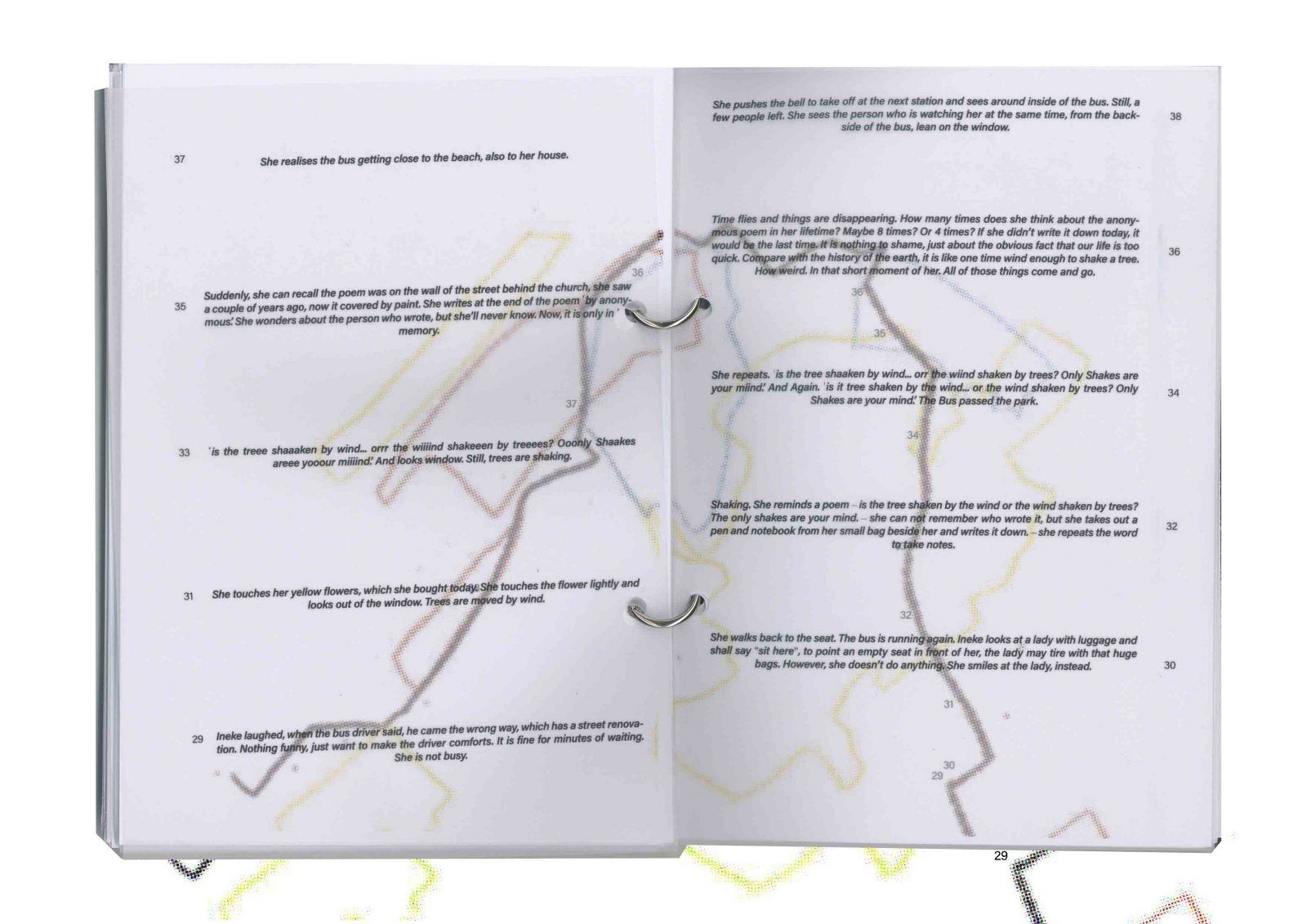
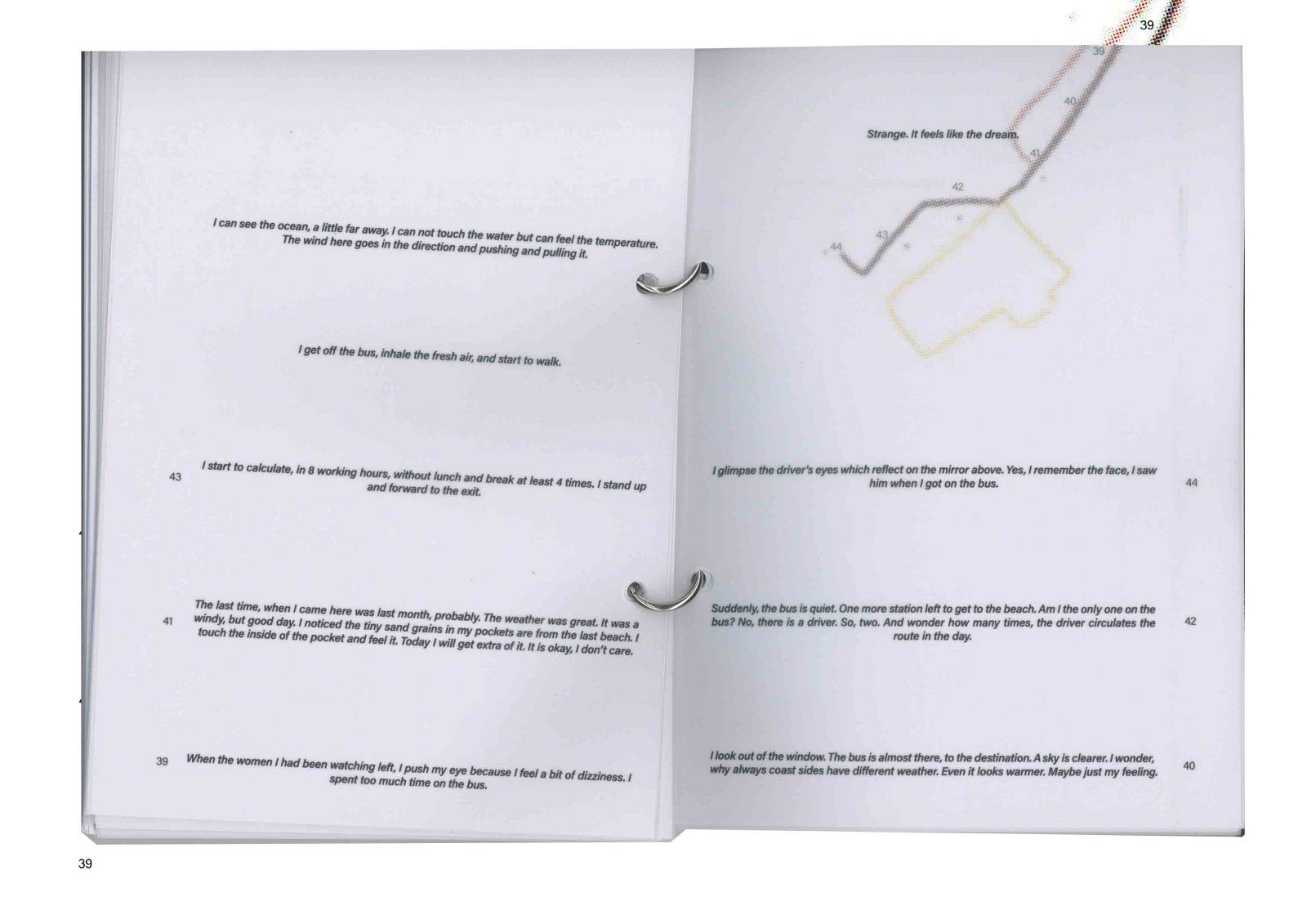
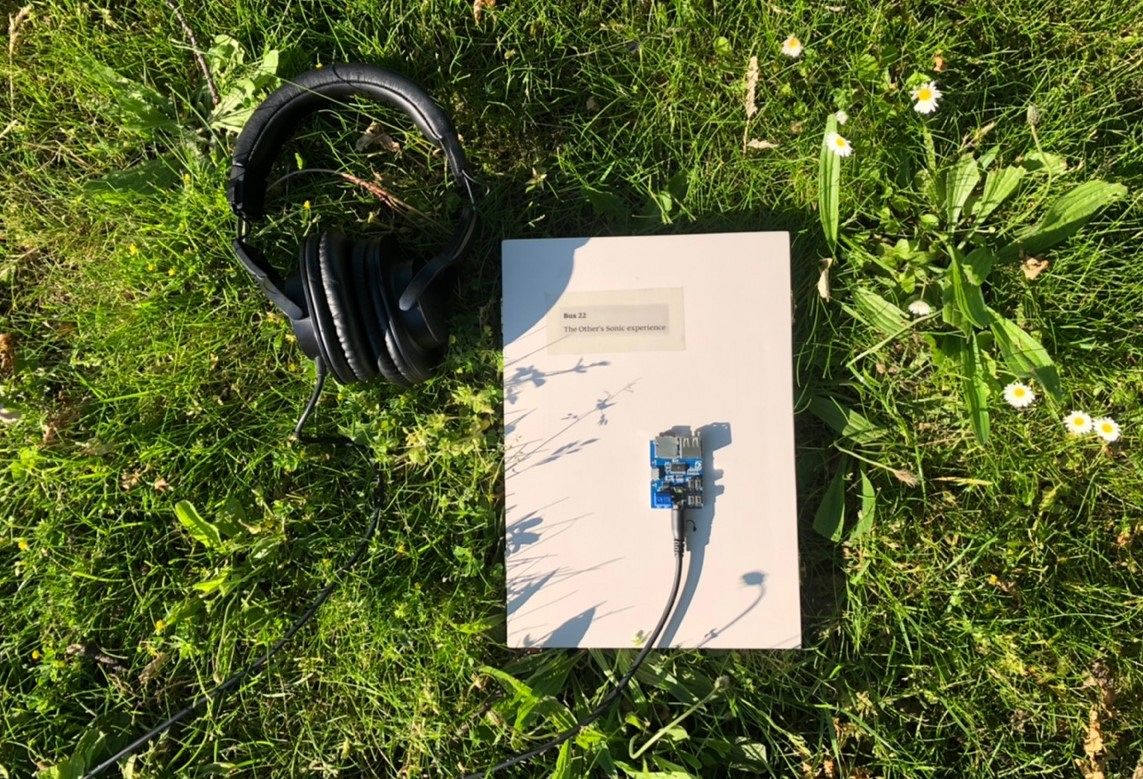
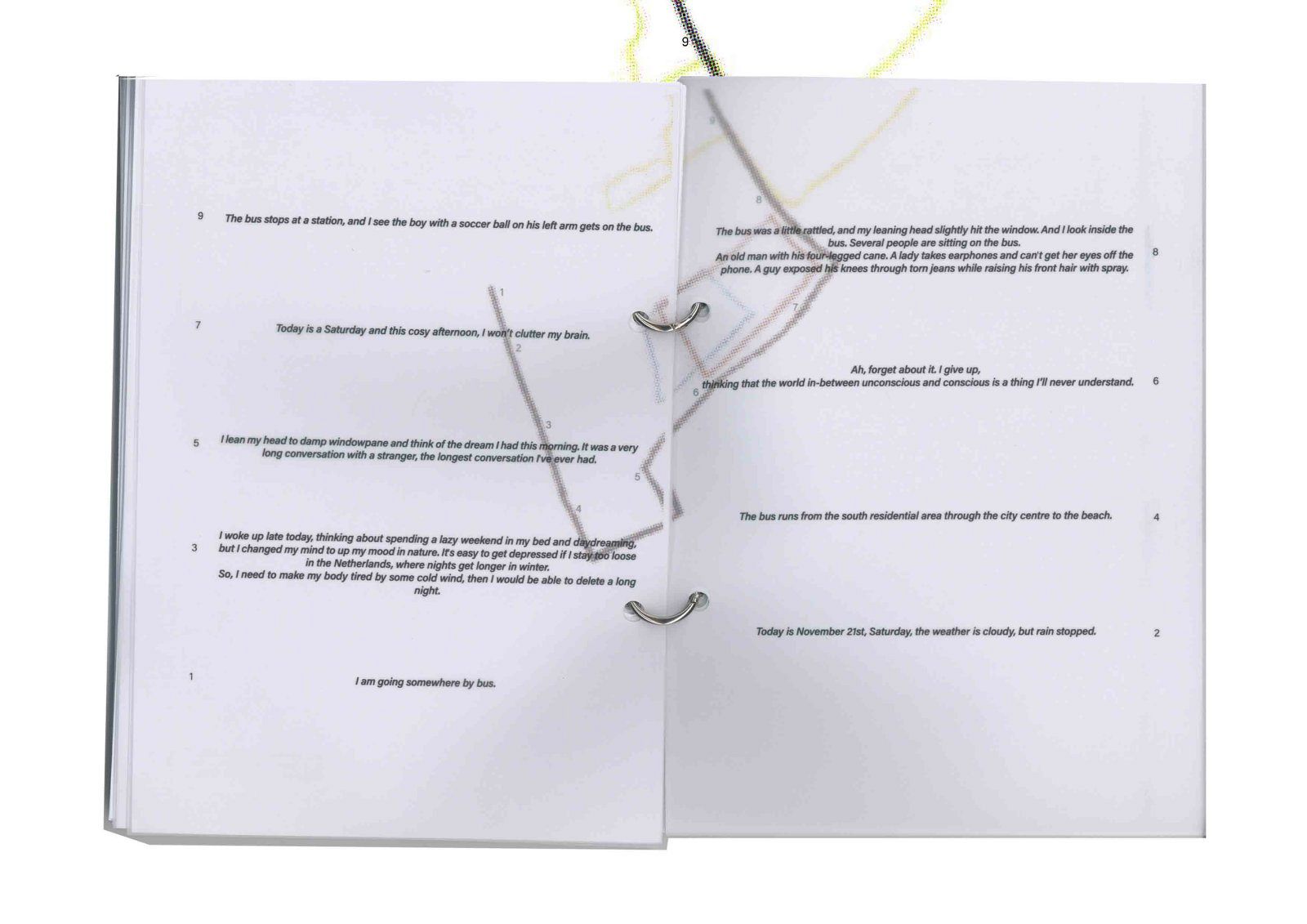
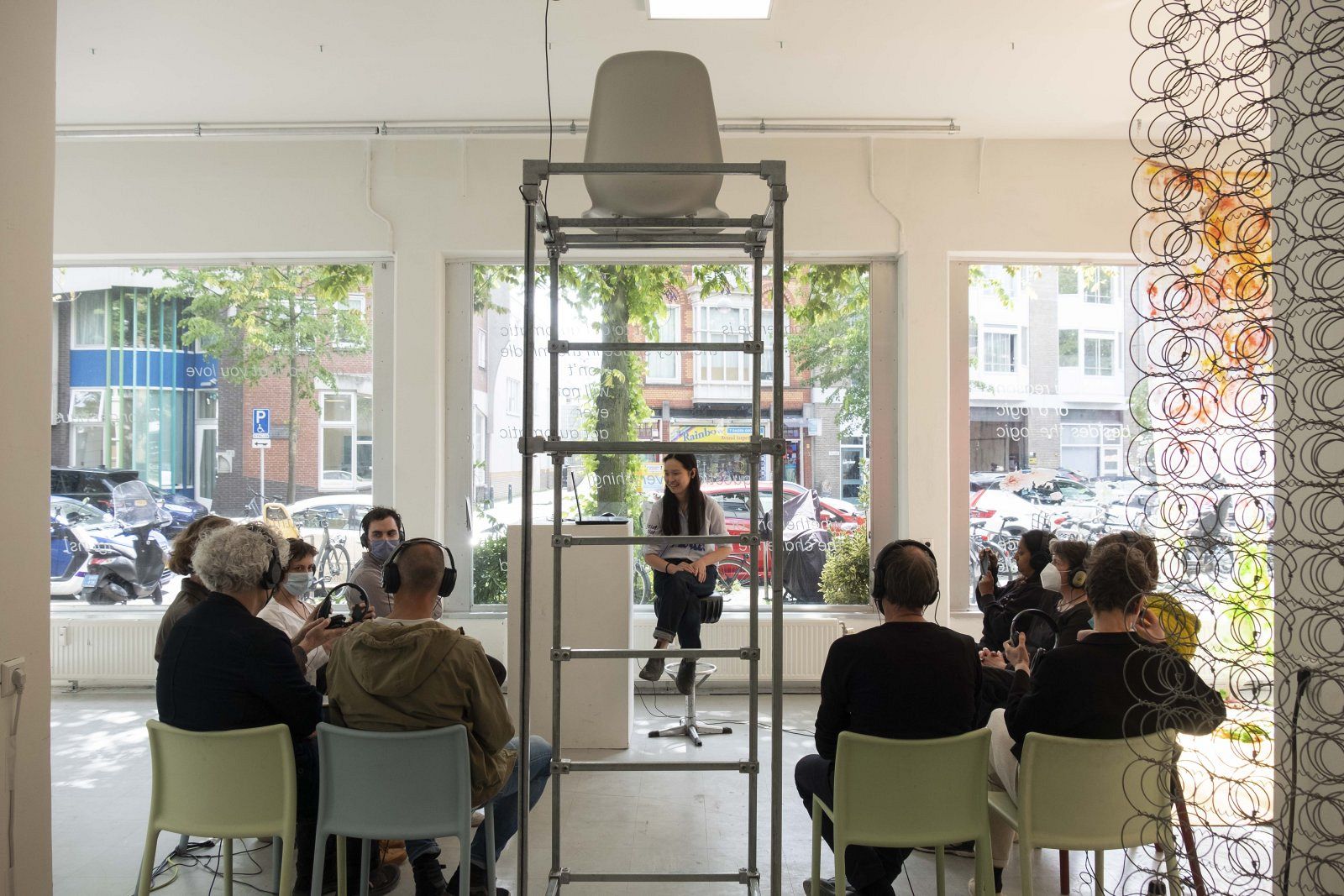
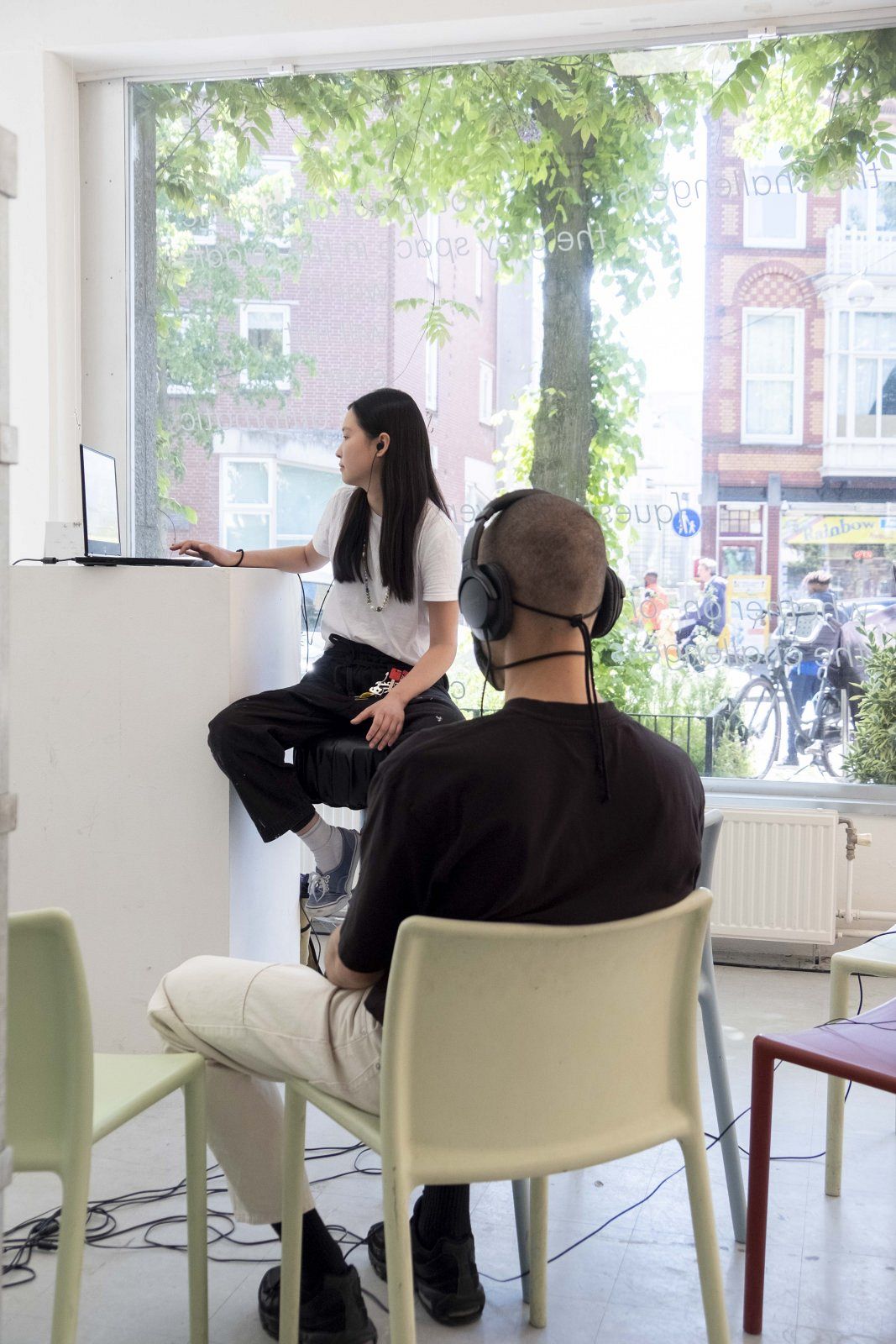
Bus22; The Other's sonic experience
Thesis
The thesis includes one and a half years of artistic practice and research on sonic experiences.
The research starts off from a first-person perspective – myself; what am I listening to now? The surrounding soundscapes is represented by sound notations in an explicit form and explored through listening performances in order to understand the structure of hearing in a philosophical way.
Then, the thesis shows how the writer’s interest moved to ‘the other’ (second or third person perspective) with the question: What is I’m listening to and how is it different to what you’re hearing? This brings forth the element of fiction by which a third person’s sonic experience is revealed.
Bus 22 is an audio-playback of a fictional story with visual instructions. It is based on two main aspects; Anamnesis: mnemo-perceptive effects, and Voice in thoughts: storytelling.
Finally, the thesis talks about the encountered difficulties during research and making processes. The conclusion encompasses the value of perceived and narrative based sound arts.